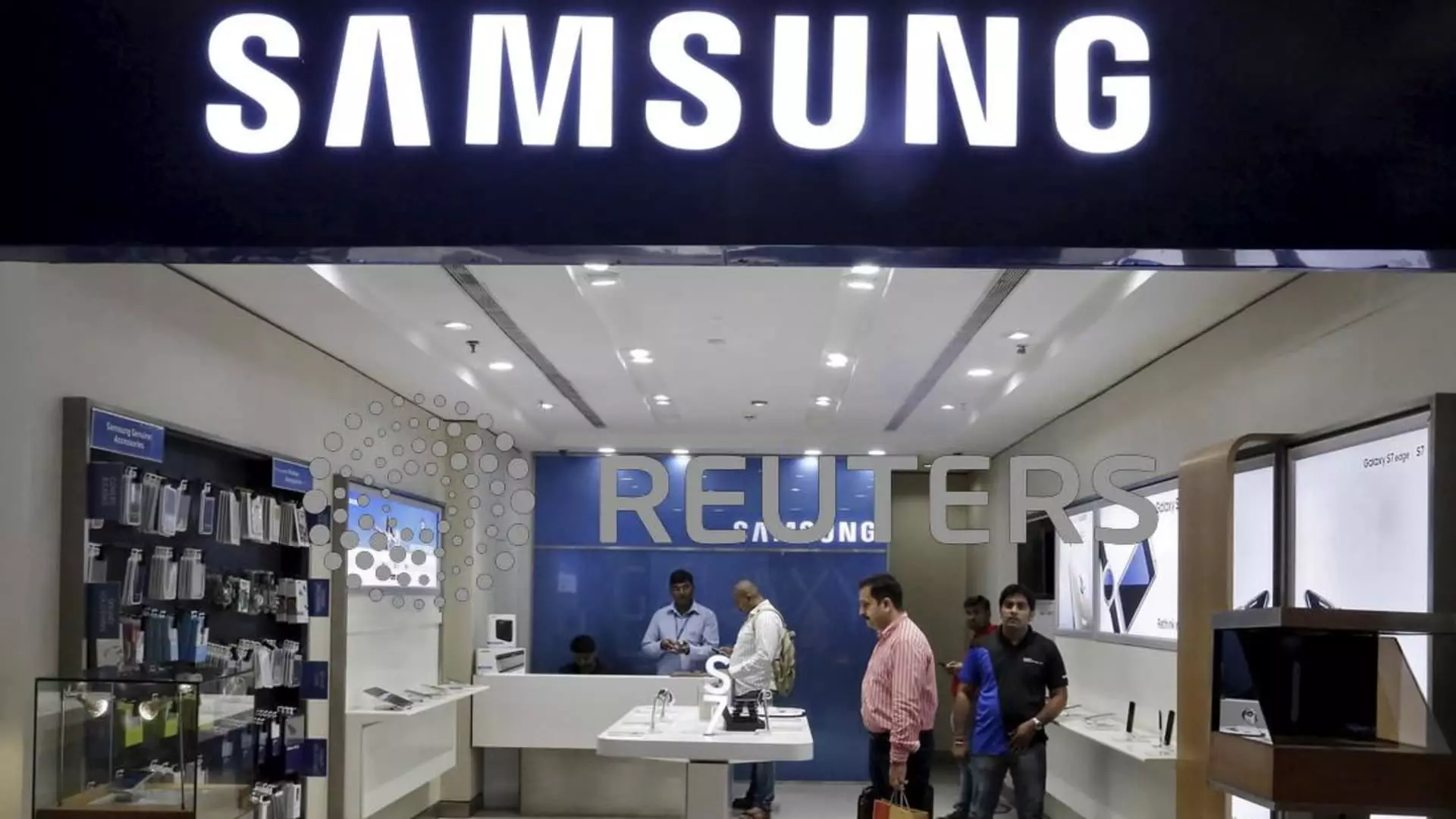On Thursday, Samsung Electronics unveiled its financial results for the third quarter, reflecting a performance that both met and fell short of expectations. The company’s overall sales and operating profit edged above their own forecasts, yet their semiconductor sector encountered a dramatic decline in profit compared to the previous quarter. This paints a picture of an organization grappling with buoyant growth in certain areas while simultaneously contending with significant hurdles in others.
The semiconductor division, a cornerstone of Samsung’s operations, reported an operating profit of 3.86 trillion won (approximately $2.8 billion), marking a staggering 40% decrease from the preceding quarter. Although there was resilience due to heightened demand for artificial intelligence and traditional server products, Samsung highlighted that “inventory adjustments negatively impacted mobile demand.” This reflects the broader challenges within the industry, where shifts in consumer preferences and market conditions are becoming increasingly complex. The Korean multinational also noted difficulties resulting from the proliferation of older products in the Chinese market, further squeezing their profit margins.
Samsung holds a dominant position as the leading manufacturer of memory chips, which are crucial for laptops and servers. It is also a key player in the global smartphone industry, ranked second in market share. However, despite the promising prospects of advanced artificial intelligence technologies driving growth, the company remains cautious. They reported that the anticipated upturn in mobile and PC demand would take longer to materialize. This caution underscores the volatility of the tech market, particularly as consumers and businesses adapt to a rapidly changing landscape.
In response to the challenges, Samsung Vice Chairman Jun Young-hyun, who recently took charge of the device solutions division, acknowledged the situation with an unusual apology following the release of the guidance figures. Despite the tough outlook, Samsung maintains an optimistic perspective for the future. The company anticipates that demand for advanced chipsets will serve as a catalyst for growth in the upcoming year, fueled by continuous investments in server technology and a broader push toward AI integration within various sectors.
Despite the silver lining in terms of future growth potential, investors have reacted negatively to Samsung’s recent financial performance. Shares of the tech giant have plunging by 24.71% year-to-date on the South Korean stock market, indicating a lack of confidence in both immediate performance and recovery in critical sectors such as mobile technology. This decline in stock value not only reflects concerns surrounding current profitability but also raises questions about the company’s long-term strategic direction in an ever-evolving tech landscape.
While Samsung Electronics is positioned to benefit from burgeoning demand for advanced technological solutions, significant challenges in its semiconductor business and fluctuating market dynamics suggest that the road ahead might be rocky. The company must navigate these complexities carefully to reclaim investor confidence and bolster its standing in the global market.

